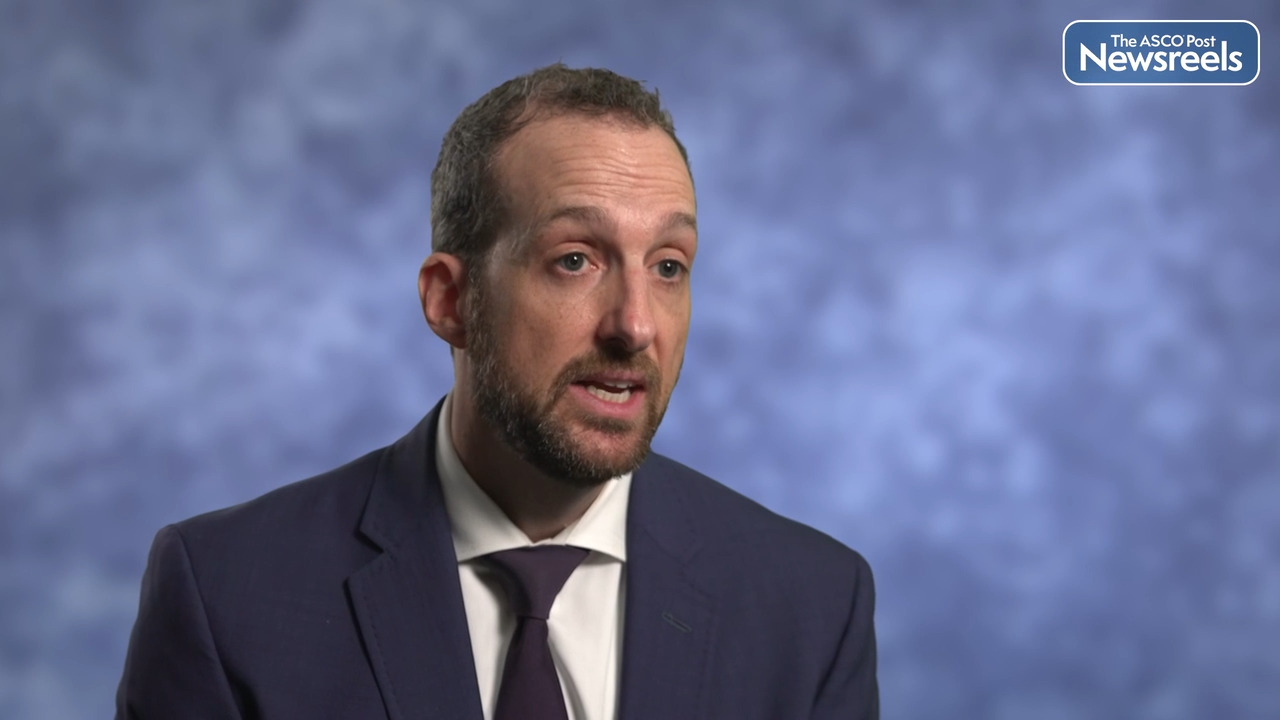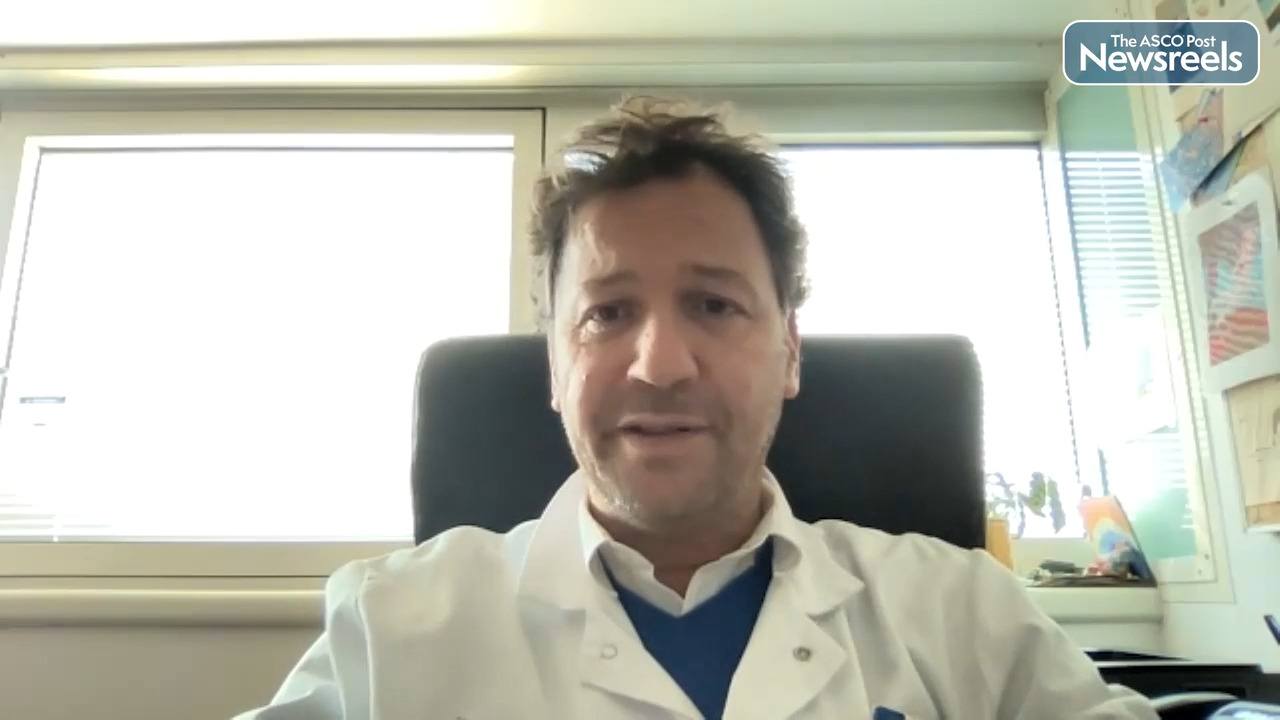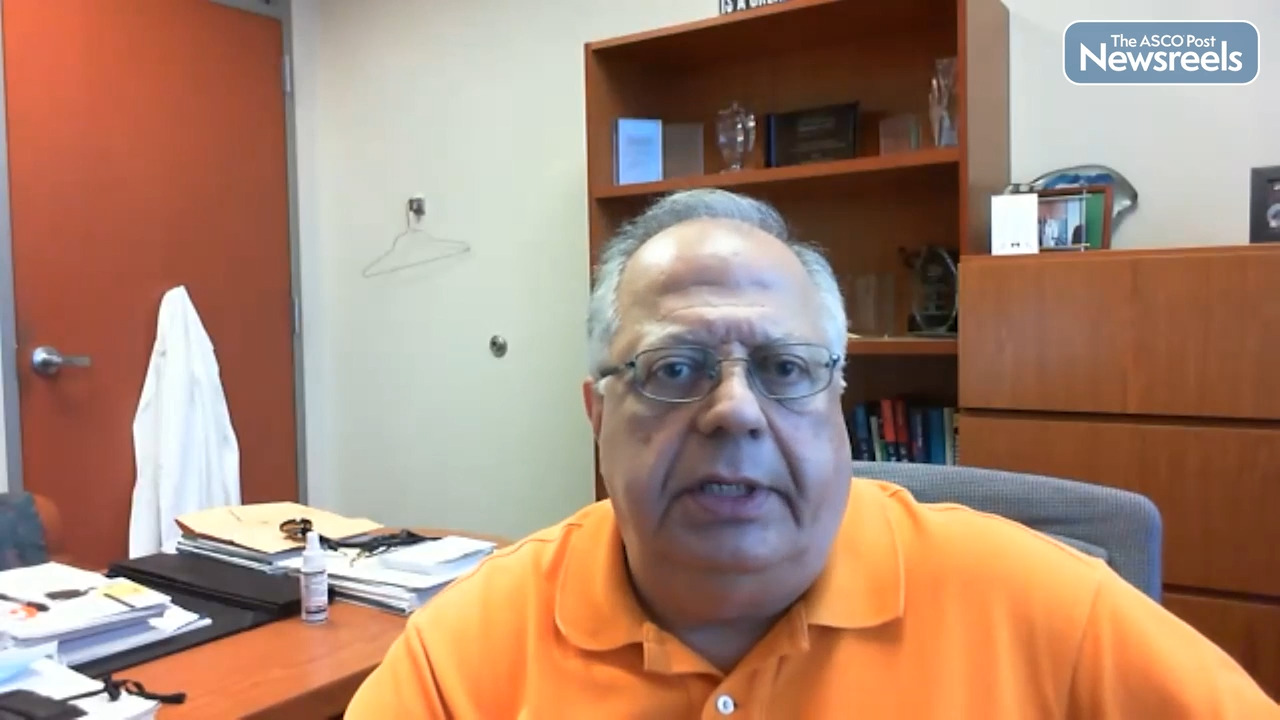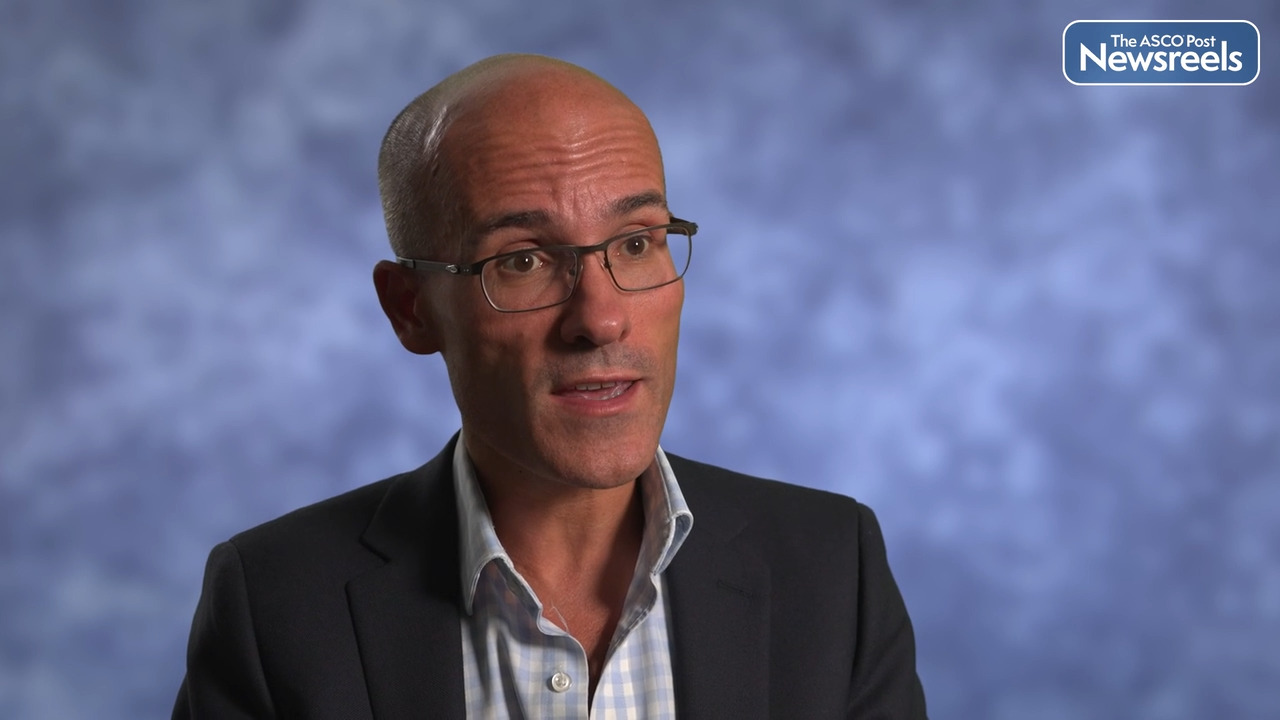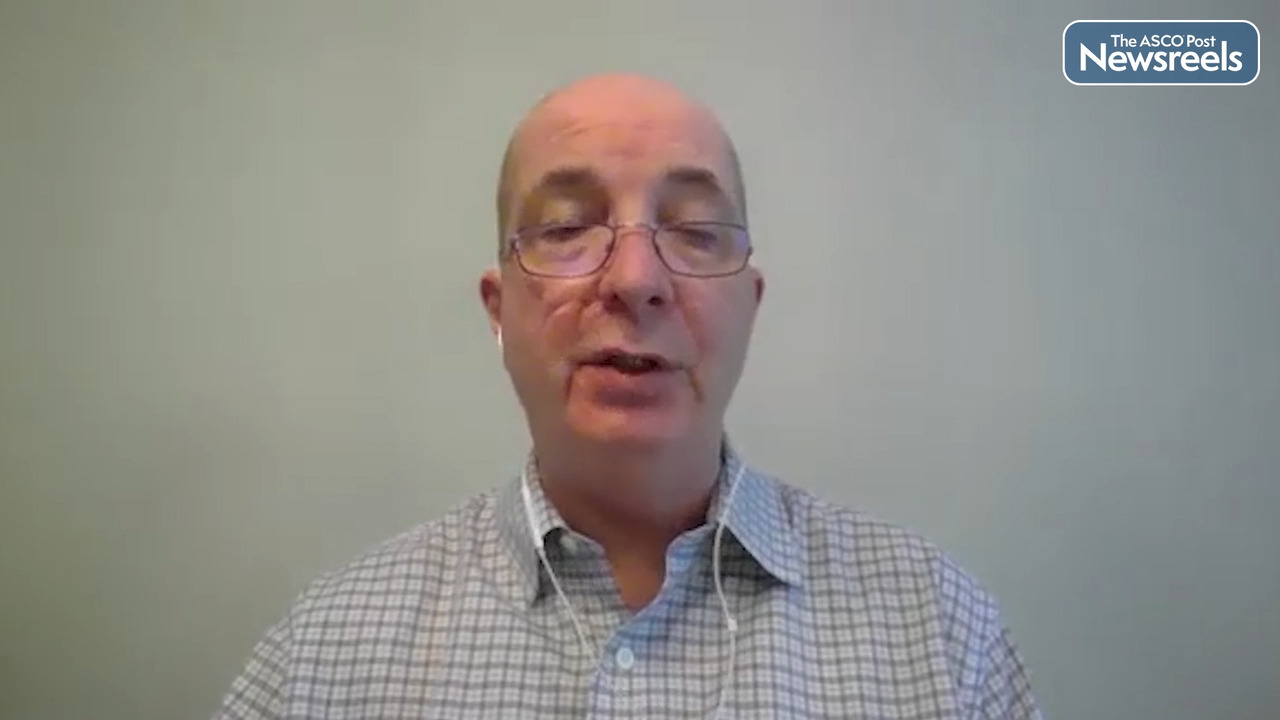Transcript
Disclaimer: This video transcript has not been proofread or edited and may contain errors.
We published our results from the ENACT trial just a couple of months ago in JAMA Oncology. It was an interesting trial design. It was phase two, a little over 230 patients, one to one randomization; grade group one enriched and grade group two patients. Half the patients we continue to monitor in traditional active surveillance and the other half of the patients received full dose enzalutamide, the oncolytic dose for advanced prostate cancer patients. Our primary endpoints included progression, therapeutic progression based upon moving to active intervention treatments and PSA elevations. And then we also had biopsy key data at one year and two year. The patients received in the treatment arm, open label therapy with enzalutamide for one year. What we saw was a marked decrease in positive biopsy rates and a benefit to staying on treatment, on active surveillance when taking administering enzalutamide. More patients, in other words, who did not take the enzalutamide went on to active treatments.
Now I want to be perfectly clear because of some of the reaction and comments I saw from my colleagues that robust education on active surveillance is really important. But what we know is that many physicians and many patients have a difficult time staying the course of active surveillance. They go to treatment, surgery, radiation, focal therapies for a whole sundry of reasons, including PSA kinetics and concern about not doing something actively when there's cancer present. Our biomarker study looking at PAM50, luminal and basal components, as well as antigen receptor activation, as well as the Decipher score has now clearly demonstrated that we can have a prognostic benefit for patients who had high Decipher scores to know that they would go on to therapeutic progression, which was the endpoint of the ENACT trial and looking at AR amplification as well as the PAM50 luminal basal delineations, we can see, and our first author, Ashley Ross, senior author, Ted Schaeffer have clearly demonstrated that these RNA biomarkers are very informative.
So as we move towards more understanding of who would be a better candidate for active surveillance versus taking a treatment, I think these will be very helpful. I look forward to additional trials where we may dose adjust with the AR blocker. We may find different ways to administer the AR blocker, perhaps intraprostatic injection or perhaps different dosing, different dose scheduling. The bottom line I think, this RNA biomarker analysis is helping us to further inform physicians and patients regarding personalized decision making and fidelity to an active surveillance protocol and avoiding active treatments that may be more morbid and more costly.
